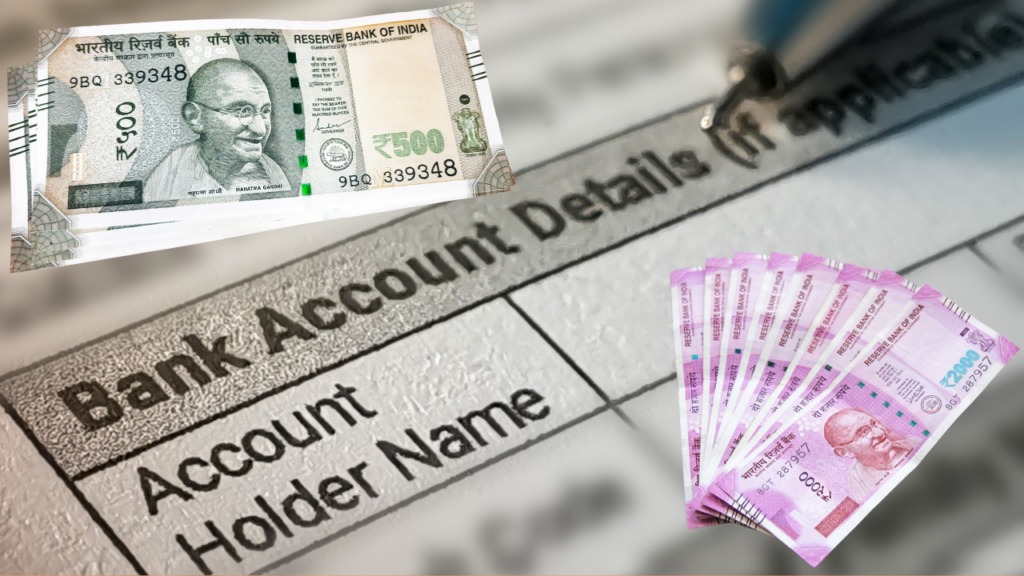
Before even starting this blog article, I would like to give a heads-up on how did I arrive at this figure of Rs. 50,000. In India, the median average income is Rs. 5 lakhs per annum. This arrives at approx. Rs. 50,000 per month. Hence if a person gets one month salary as his annual bonus, which made me to write this blog-article with the amount of Rs. 50,000 I your account as a disposable income, and what are some interesting ideas that you can employ this money.
Now comes the real disclaimer that the points discussed in this article are my thoughts and I give due respect to your commitments with that bonus money. Just consider these ideas as a good weekend read through article with a cup of coffee in your hand!
Without further ado, let us look at some options for how to spend (or invest) a cool Fifty thousand rupees lying in your bank account. Some of the recommendations will help your bottom line, while others are investments in your future, and some others may be tailored to some of you.
Invest it:
As a financial blog writer, you would have minimum expected this idea from me, and I am not going to disappoint you!

I am not a person who would recommend you to buy some small cap stocks which are in some good bargains. In fact, I am not a person who would recommend to invest in individual stocks, as investing in individual stocks is a serious ball-game. My concept of not investing in individual stocks is very simple. Knowledgeable fund managers (who are way more knowledgeable and experienced than me) are struggling to beat the market returns, and then who am I to beat the market and produce stellar returns?
So, my suggestion for your 50K bucks is to invest it in a market-linked ETF or index fund. There are many index funds that track Nifty, Sensex, Bank stocks, IT stocks, Midcap stocks, etc. You can invest in these index based mutual funds or ETFs to generate some decent returns in the long term.
Invest in Flexi-cap mutual funds:
If you still are not convinced by the above approach said on investing your surplus money, and if you are a risk-loving investor, then I would recommend you to invest your money in some Flexi cap mutual funds. A flexi-cap fund is a form of mutual fund that does not have to invest in firms with a specific market capitalization. These are open-ended flexible equity funds that invest in large-cap, mid-cap, and small-cap companies.
A flexi-cap fund can give the fund management more investing options and portfolio diversification options. A minimum of 65% of the total assets of the plan must be placed in equities or equity-related products.
The Flexi cap mutual fund is an excellent alternative for individuals with moderate to high risk tolerance. However, investors must have a five-year investing horizon. Small cap stocks in this sort of portfolio might be more unpredictable, increasing your portfolio’s risk. However, by balancing these risks, big companies may mitigate some of these fluctuations by small cap stocks and hence create steadiness.
But this investing does come with a disclaimer that you need to keep in your mind before investing in Flexi cap funds. You need to watch out for Market movement risks, Expense ratio, Investment time frame, tax on capital gains, your individual financial goals, etc.
Put this money aside for your Kids’ Future education:

As we are aware, it is critical to design a well-balanced financial plan to fund the higher education costs of our children.
I acknowledge the fact that when it comes to investing for your child’s higher education, you cannot set a precise goal. It’s difficult to predict the path your child will eventually choose because fees vary based on that as well. Another factor to consider is sending your child overseas. Yet rather than overthinking these issues, it is crucial to begin saving money. If you fall short later, you can take out a modest education loan to make up the shortfall. That’s a lot better than taking out a hefty, full-fledged educational loan.
Hence you can kick-start this financial goal by investing this 50k in your hand. You can invest this in Child Plans of Insurance companies, Child specific mutual funds, ULIPS, Mutual funds, etc. I have written a detailed blog article about how to devise an investment portfolio for your child’s higher education costs. You can check that out here.
Offer a head start on saving for retirement:
Some of you maybe nearing your retirement age, but many of you reading this blog may be having a lot more years before reaching your retirement. Whatever maybe your age now, it’s never too early to start saving or investing for your retirement. Hence you can use this money of Rs. 50,000 to invest it for your retirement savings. You can open a NPS (National Pension Scheme) account and invest this money in NPS for your retirement nest egg. Not only you can invest once in this account, you can also motivate yourself to invest regularly (at least annually) in this account during the course of your employment, to be useful during your golden years. On retirement (at the age of 60), you can withdraw a part of the corpus (60%) in this NPS account as a lump sum and use the remaining corpus (40%) to get an annuity payment (monthly pension payment), so that you will secure a regular income after retirement.
Plan Early, Retire Happily !
Pay down debt:

You can strengthen your bottom-line by paying down your debt well ahead of its schedule. Bottom-line is nothing but the net profit or the retained earnings that you really have in your hands after all your expenses. In order to boost your bottom-line, you have to pay down your debt as earlier as possible. Especially, high interest rate loans are always a thorn in your income flesh, and hence you have to get rid of these at the earliest. Some of the high interest loans are credit card debt, personal loans, car loans, education loans, etc. You can use this 50K money to repay your debt. If you do not have any other high-interest loans, and the only debt you have is your mortgage loan (home loan), it is still a wise option to prepay a part of this mortgage loan using this 50k money in your hand. Reduced debt or no-debt Balance sheet is always a pleasure to watch and feel.
Get a financial check-up:
Paying a financial consultant to create a complete financial plan for you is another solid option you might pursue with the extra Rs. 50,000 in your account. You should be able to purchase some hours of consultation time with a fee-only advisor who does not collect fees from companies for marketing financial services or products to customers. You may also, for instance, seek an adviser to review your present financial strategy and identify any further possibilities or risks. Or you may want to focus on certain aspects of your financial life say, figuring out a strategy for claiming some tax benefits from your investments or your investment for retirement nest egg or determining whether it makes sense to convert some portion of your take-home salary towards Voluntary PF, etc.
But please note here that do not go for any generic social media advice when it comes to your personal finance or investments. Also, you have to take expert advice from SEBI registered Investment adviser or Research analyst, but still, at the end, you have to make your own judgment when it comes to savings and investment of your hard-earned money.
Start a new Hobby:

You can try to start a new hobby, such as joining a swimming class, yoga class, or you can even purchase a good bicycle and you can start cycling. By doing any of these, you will ensure that you try to keep your body active and energetic. But the only caveat here is that – we start many of these activities, but do not continue it (as it has happened to me, predominantly during the New year times, with those imaginative New year resolutions!). But if you do not try to be like me here and consistently practice these hobbies, then there is definitely more chance for you getting a good appreciation (10 years or 15 years down the lane) from your future self.
Hobbies do not mean physical goal oriented hobbies. You can pick up an instrument – whether you want to play the piano, the guitar, or another instrument, it’s never too late to learn. You can get started both in-person and virtual lessons, as we can see more online classes these days. Use your surplus 50K money for these hobbies.
Advance your Career:
Adding a new talent to your CV is one of the finest ways for a small investment to yield significant results. According to one research, depending on the talent, prior education, and present work, people who gained short-term certifications (usually those lasting 12 to 18 months) earned 65% more salary than otherwise comparable peers. If you just want to acquire a new skill, there are many possibilities available nowadays, including online programmes or on various internet platforms. And many colleges provide excellent opportunities by hosting such courses that match your career or career profile. Almost all of them have a fee, so you may utilise the extra Rs. 50,000 in your pocket to join in any of these programmes.
However, be aware that there are many blatantly unworthy suppliers of the courses you may like to follow. So, choose a field of study, then choose a course provider that you feel and experience to be trustworthy (if you are not aware, you can seek help from your office senior colleagues who have been in this field for a long time and are aware of these courses), and then choose a programme with an excellent standing in the field you’re targeting.
You should also determine the modality of teaching as well. Online self-paced programmes are the most convenient and often less expensive. The worst waste of money, though, is investing in a programme that you do not complete. So be practical about time constraints and the boredom quotient as well.
Travel to some place:

This is a cool idea and something which is an outlier to the above mentioned ones. It is just for someone who would like to have some personal gratification. Given an opportunity, who would not like to go for a vacation? And I am not an exception to this. Given a chance, I would like to roam places, and of all the above ideas discussed, traveling to some place with these 50K rupees is what I would have ideally done. This is not to demotivate you that the above discussed other ideas are all not worthy, but vacation is my favorite one (along with this, my second favorite is paying down any high-interest debt that I may have). I have the confidence that I can earn this money of 50K anytime in my life, say 3 years to 5 years down the lane. But I would not be in the same state of mind of enjoying the vacation 5 years down the lane. I would be interested to buy an annual course on yoga training or I would like to enroll to a fitness health club annual subscription at that time. But now I would like to go for a vacation either with my family, or myself alone.
So, next point is, with 50K, what kind of a vacation we can plan. But I will limit this blog article to this point, and for what kind of vacations that you want to plan, you can just Google and see for tour plans under 50K and I am sure that you will get a bunch of options to explore !
Now I am jetting-off for my vacation with 50k in my hand. See you in my next blog post. Ta Ta!!





